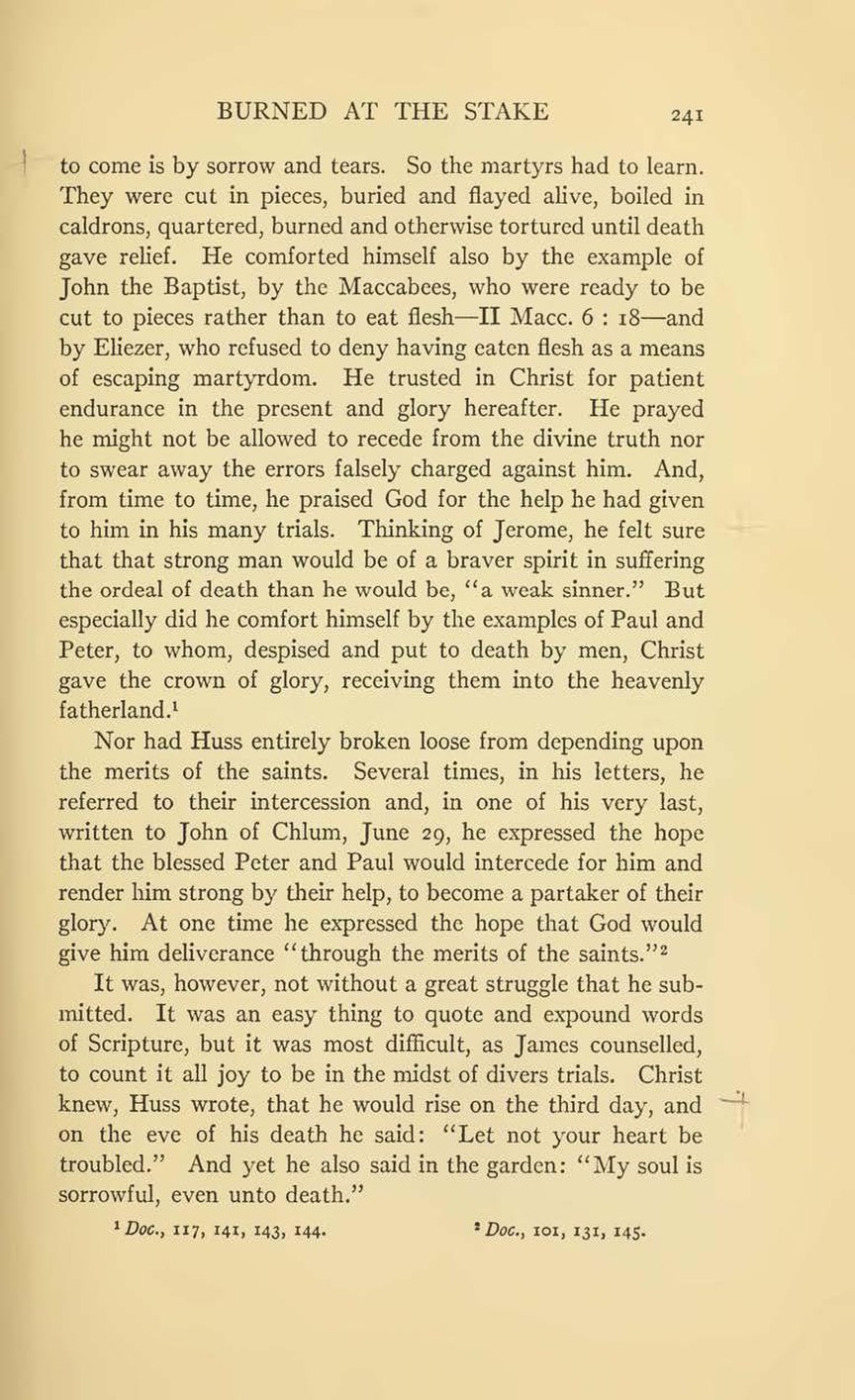to come is by sorrow and tears. So the martyrs had to learn. They were cut in pieces, buried and flayed alive, boiled in caldrons, quartered, burned and otherwise tortured until death gave relief. He comforted himself also by the example of John the Baptist, by the Maccabees, who were ready to be cut to pieces rather than to eat flesh—II Macc. 6: 18—and by Eliezer, who refused to deny having caten flesh as a means of escaping martyrdom. He trusted in Christ for patient endurance in the present and glory hereafter. He prayed he might not be allowed to recede from the divine truth nor to swear away the errors falsely charged against him. And, from time to time, he praised God for the help he had given to him in his many trials. Thinking of Jerome, he felt sure that that strong man would be of a braver spirit in suffering the ordeal of death than he would be, “a weak sinner.” But especially did he comfort himself by the examples of Paul and Peter, to whom, despised and put to death by men. Christ gave the crown of glory, receiving them into the heavenly fatherland.[1]
Nor had Huss entirely broken loose from depending upon the merits of the saints. Several times, in his letters, he referred to their intercession and, in one of his very last, written to John of Chlum, June 29, he expressed the hope that the blessed Peter and Paul would intercede for him and render him strong by their help, to become a partaker of their glory. At one time he expressed the hope that God would give him deliverance “through the merits of the saints.”[2]
It was, however, not without a great struggle that he submitted. It was an easy thing to quote and expound words of Scripture, but it was most difficult, as James counselled, to count it all joy to be in the midst of divers trials. Christ knew. Huss wrote, that he would rise on the third day, and on the eve of his death he said: “Let not your heart be troubled.” And yet he also said in the garden: “My soul is sorrowful, even unto death.”
